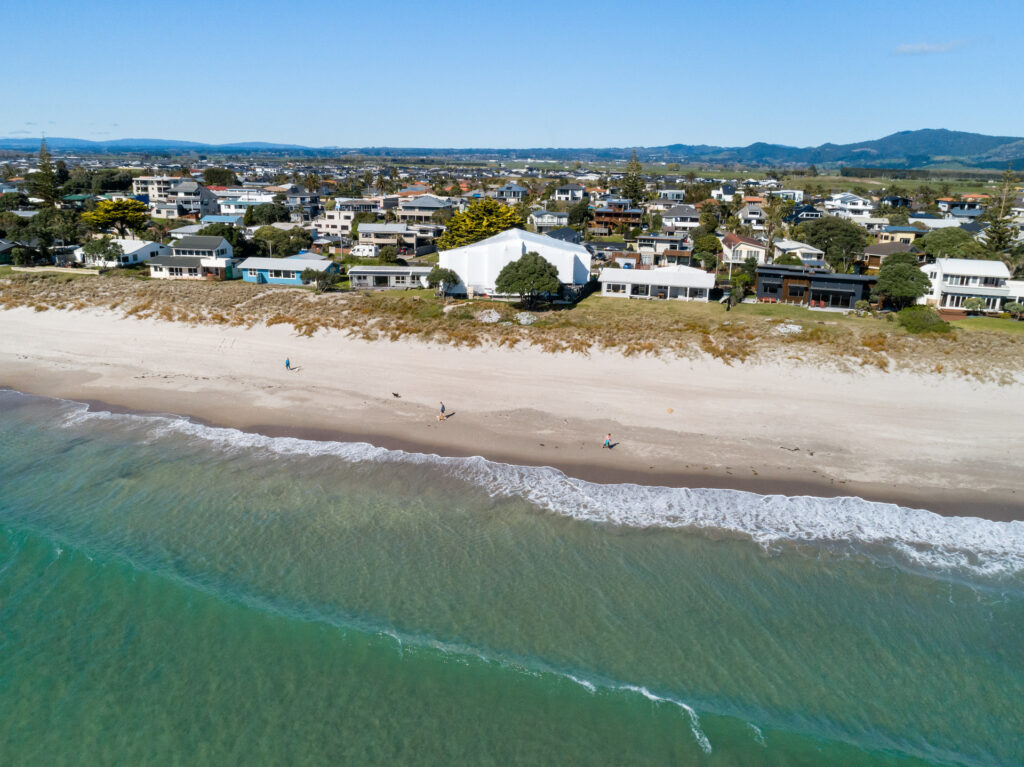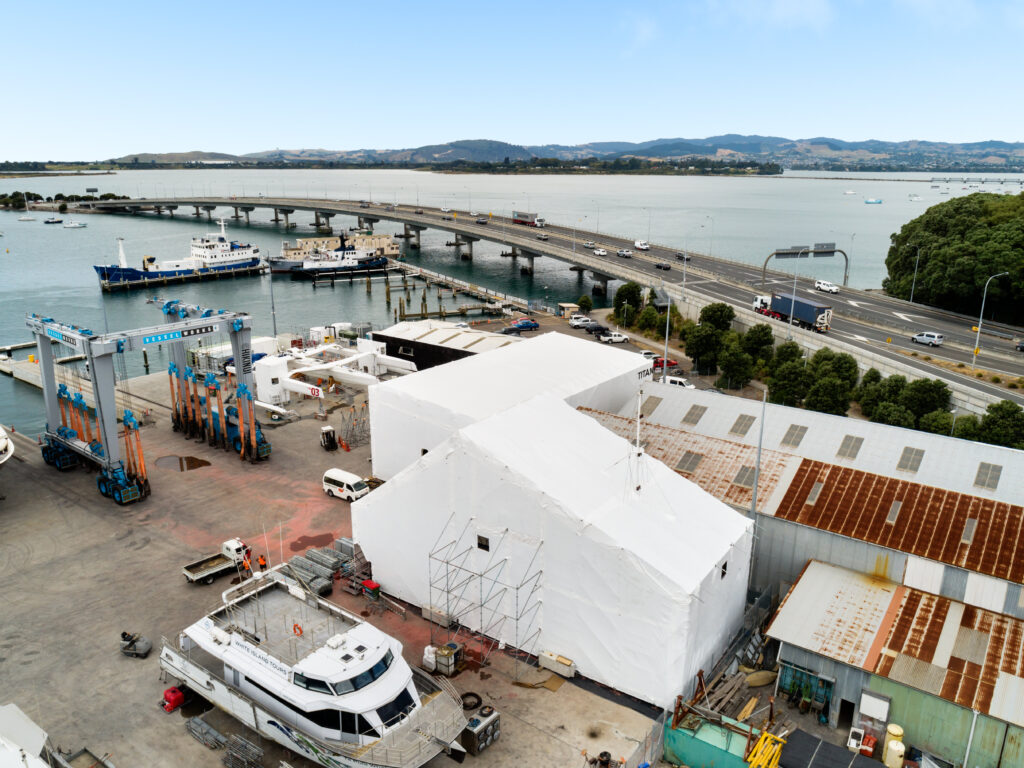Latest News

Plastic-wrapped buildings are a common sight in our region, and one of the more visible examples of plastic waste. The wrap serves as a useful protective layer but does pose a considerable environmental issue, often prompting questions about how it’s ultimately disposed of.
Enter GoodWrap Recycling, a nationwide recycling programme launched by Jethro Drum, Managing Director of Shrinkwrap Supplies. It brings together businesses in an effort to reduce barriers to recycling plastic wrap, including the Environmental Innovation Centre, which offers guidance, SARNZ (Scaffolding, Access and Rigging New Zealand), helping to advance the programme, and Mainfreight, which oversees transportation logistics.
How the programme works
Certified GoodWrap installers get a free recycling bag with every order, which has a prepaid Mainfreight sticker that’s unique to each bag. The bag is filled with the used plastic on site, then dropped to a Mainfreight depot for free shipping to Auckland, where it’s graded and recycled.
The arrangement with Mainfreight involves making use of existing space in trucks, so the programme doesn’t create extra traffic with associated emissions. This approach is designed to remain efficient, even as the programme scales.
Grading & certification
Shrink wrap is much easier to recycle when it is kept clean. “A lot of the shrink wrap becomes dirty once it’s removed from scaffolding and comes into contact with the ground,” explains Jethro. “By having recycling bags onsite that the wrap can be placed directly into, we’ve mitigated a lot of this contamination.”
GoodWrap weighs and grades every bag of shrink wrap returned into one of three categories:
Clean: Minor dust or water staining – this can be recycled as is.
Dirty: Anything with loose dirt, sand, gravel or paint must be washed before it can be recycled.
Contaminated: Bags containing unrecyclable materials, such as cloth tapes, strapping, flashing tapes or general rubbish, require manual sorting to recover anything recyclable.
Clean shrink wrap is recycled free of charge. Dirty or contaminated bags incur a fee to cover additional handling and processing costs. Using multiple bags onsite gives installers the opportunity to separate clean and dirty material at the source, helping to reduce contamination.
The percentage and condition of the shrink wrap returned contribute towards an installer’s annual certification: Gold Certification (over 90% of shrink wrap recycled), Silver Certification (over 75% recycle),
Green Certification (up to 75% recycled).
Installers also receive a receipt stating the quantity and condition of the plastic recycled. This can be provided to contractors, property owners or included in waste management plans.
Jethro notes the positive shift in industry practices: “I’ve seen a real culture change – a year ago, around 25% of the plastic we received was dirty,” he says. “Now, it’s under 1% because the charges and certification scheme have been introduced.”
Made & recycled in New Zealand
GoodWrap recycles in New Zealand, which Jethro says saves up to 35% emissions, versus going offshore. Also, it’s a high-quality process, as it doesn’t mix a variety of plastic grades, so the reclaimed resin that’s produced closely matches virgin quality and can be recycled multiple times.
The resin is mainly sold for use in the production of damp-proof membranes for waterproofing buildings. GoodWrap is also making a range of 100% recycled shrink wrap products, suitable for packaging.

Change for good
Vincent Harnor, director at Titan Wrap, recalls a couple of turning points for his industry: China ceasing to take waste in 2018, and an exposé on TVNZ’s Sunday, which detailed the volume of plastic ending up in landfill. “It held the construction industry accountable. Our dirty little secret was in the spotlight and it made things change for good,” he says.
Vincent is now a GoodWrap installer and says he’s keen to raise awareness and encourage people not to simply choose the cheapest option. “We are 20% more expensive than lower-grade plastic from China, but we hope that builders go for quality recyclable products.” He acknowledges it’s a choice for now, but that won’t be the case forever. “Change is coming… it will eventually become law, so it’s about getting ahead of the game.”
Jethro agrees and believes GoodWrap certification will become a benchmark for the industry (especially given his company supplies about 50% of Aotearoa’s building wrap). Public demand for the certification on construction sites is already growing. “I hope this puts pressure on competitors, so they step up,” he says. “It falls to everyone to play their part.”
Priority One’s Circular Construction Collective brings together businesses to tackle waste reduction in the construction sector. To find out more, get in touch with Sustainability Lead, Marissa Nikora marissa@priorityone.co.nz
